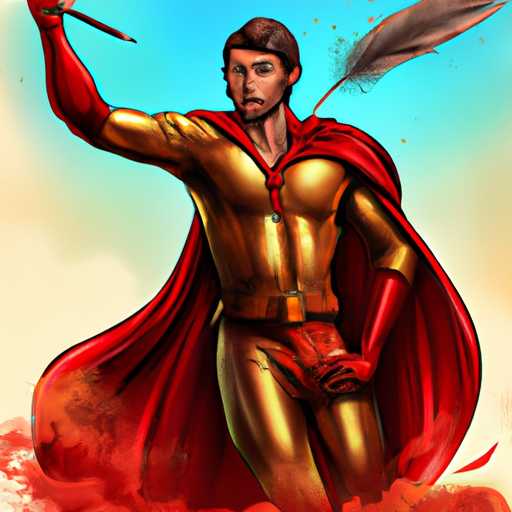
I sing the tale of a forgotten hero, summoned from the annals of history, nurtured by my imagination, constructed from faded ink and yellowed parchment. His name was Humphrey; a name that resonated in the halls of medieval Gloucester.
Humphrey the Scourge of the West—they called him so. He wasn't a king or a noble, but a lowly scribe, penning histories as they unfolded, etching lives with quills and ink. Yet, he was something more.It was the year of our Lord, 1066. The Battle of Hastings had just laid ruin to England's gallant Harold, and Saxon England wept. The usurper William of Normandy claimed the throne. On the windswept hills of Gloucester, amidst the noise and clamour of the Norman invasion, Humphrey sat alone in his humble abode, struggling to eke out a living, penning minor records for minor nobles. The quill, and his potent intellect, were his greatest allies.
One day, a rider from court brought news that made Humphrey's heart lurch with fear "The King's Scourge, a punitive tax, has been declared on the Saxon populace'. The words echoed ominously. The timing couldn’t have been worse. The plague had swept through the previous winter, carrying away what little stood as wealth among the peasants.
The news reached far and wide. Agony surged through the populace as they realised the doom that awaited them. The whispers became murmurs, the murmurs became cries, and the cries became an echoing howl. It was then that Humphrey decided to stand against the tide. Not with a sword, not with a battalion, but with his humble quill.
With a heart heavy with resolve, Humphrey began on an arduous task. He wrote, not just of the king's decree, but of the plight of the common man, of the pain and suffering to follow. He wove a tale so powerful, so moving, that even the coldest stone could feel its warmth. His quill danced on the parchment, fueled by the people's helplessness, their tears, their fears.
Who would stand for the common man, when the crown itself seeks to usurp what little dignity remains? Who would lend a voice to the voiceless, when the noise of power seeks to drown out their pleas? When the king's greed threatens to consume us, are we not better off consumed by the fiercest dragon? These are the truths the Scourge has unveiled, Humphrey penned defiantly.The people read the chronicles. They wept, they raged, their sorrow turned to indignation. The Chronicles of the Scourge became word of mouth, an echo in every home, a war cry in every street. People began to gather, to speak, to stand together.
The King, furious at this defiance, decreed that Humphrey be arrested. The King's men came thundering down on Gloucester. But a scribe is but a drop in the ocean, an echo in the cacophony. Humphrey had expressed their voice through his chronicles, had empowered them, had shown them the power of unity. And so, they stood united, protecting him from the claws of the King's fury.
They resisted, they fought, not with swords, but with their sheer will, their unity. They faced the wrath and yet remained unbroken, for they had something more potent than any army- they had a cause. A cause championed by an unlikely hero with an unlikely weapon - a scribe, a quill.
Cornered and caught off guard by the surge of rebellion, the king was forced to reconsider. The wrath of the Scourge was lessened, the severity of the taxes reduced. A small victory had been achieved. It wasn't a drastic shift of power, but the blow to the King's high-handedness and the spark of rebellion ignited, stayed.
Humphrey, the Scourge of the West, persisted. Writing, rebelling, rousing - proving that the mightiest sword could not vanquish the power of the quill.
It was a tale told in whispers, a flame kindled in the shadows, a legend murmured in pubs and firesides. A tale that whispers to the people even today - of the power of the voiceless, of the strength of unity, of the might of the humble quill. For it was a tale spun by Humphrey - the scribe, the chronicler, the Scourge of the West.










